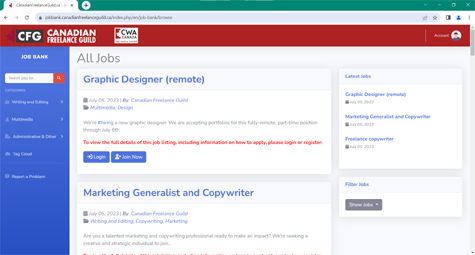1. Anyone receiving training or performing work as part of an internship or entry-level position, with the exception of students from an accredited post-secondary institution on a short-term educational placement, should be treated as employees, receive remuneration at or above the starting salary in the collective agreement, and be covered by all employment standards.
2. Training should be paid in all circumstances: Interns and persons performing entry-level work should not be requested to undertake any form of unpaid labour as part of training or as a precursor to employment.
3. Unpaid internships for non-students should be prohibited in all circumstances.
4. CWA/SCA Canada and its locals have a role to play in advocating for employers to compensate students at the same level as entry-level employees and the government to expand employment standards to all workers, including students and interns. This is important because:
a. Equity and Exclusivity: Historically marginalized communities are being shut out of media work due to their inability to engage in unpaid labour. Paid internships would attract people from these marginalized groups, which would diversify and improve media coverage.
b. Safety: Unpaid interns who must take on paid work in addition to their internship are susceptible to overwork and are at heightened risk of accidents at or on their way to work. Unpaid interns, the majority of whom are women, are also more vulnerable to harassment in the workplace.
c. Value of work: All media work has value and should be adequately compensated. A devaluing of media work and a resulting downward pressure on wages occurs when it is accepted that some workers must work for free.
d. Monitoring and enforcement problems: When employers use unpaid student interns, it is difficult to adequately monitor the situation and ensure that these students are not being asked to take on work beyond the terms of their internship.
5. All interns, both paid and unpaid, should be covered by existing workplace collective agreements. This is important in:
a. Minimizing the potential for work to be shifted to non-unionized workers: This erodes worker bargaining power and further shifts the power imbalance in favour of the employer
b. Building intergenerational solidarity: By welcoming the next generation of workers and activists into our locals, CWA/SCA Canada can continue to build our strength in the workplace and the media sector.
5.1 The collective agreement should address:
a. The requirement of a written agreement between the intern and the employer.
b. The scope of the internship: outline the training that will occur.
c. Expected hours of work and length of contract.
d. Avenues for recourse for the intern.
e. The assignment of a mentor, and requirement of daily guidance and feedback.
f. Training on safety and harassment.
g. Forms of compensation, including honouraria, expenses, per diems and reference letter.
h. Credit and acknowledgement for the work being done.
Adopted on Friday, April 17 2015 by the CWA Canada National Representative Council




